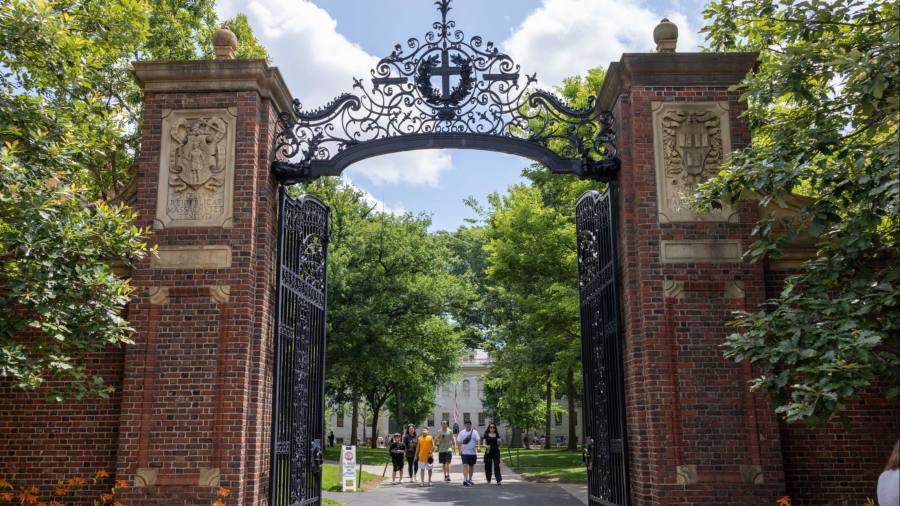Receive free US society updates
We’ll send you a myFT Daily Digest email rounding up the latest US society news every morning.
Harvard University has been targeted by a legal challenge over the practice of favouring undergraduate applicants who are related to alumni or big donors, less than a week after the US Supreme Court curbed the use of race in college admissions.
The complaint filed to the US Department of Education’s office for civil rights claimed the elite institution each year “grants special preference in its admissions process to hundreds of mostly white students — not because of anything they have accomplished, but rather solely because of who their relatives are”.
Three Massachusetts-based advocates for minority groups behind the action demanded an investigation into Harvard’s use of donor and so-called legacy preferences, a declaration that it is discriminatory and a halt to such practices if the university is to continue to receive federal funds.
The move comes after the court last week made a landmark ruling against affirmative action at Harvard and the University of North Carolina, saying that including race as a criterion for university admissions was unconstitutional.
The new complaint filed on Monday referenced the ruling, citing its judgment that “a benefit provided to some applicants but not to others necessarily advantages the former group at the expense of the latter”.
A growing number of students have also called for the abolition of legacy admissions influenced by whether relatives attended the same college. Some elite universities, including Johns Hopkins and Amherst, have stopped the practice.
The lawsuit against affirmative action that went to the court, launched by the lobby group Students for Fair Admissions, exposed the extent to which Harvard considers legacies, which were introduced in the 1920s partly as a mechanism to limit the rising number of Jewish immigrant applicants.
Data that surfaced in the case showed legacy applicants between 2014 and 2019 were nearly six times more likely to be admitted compared to others, while donor-related applicants were nearly seven times more likely. Legacy and donor-related applicants constituted up to 15 per cent of Harvard’s admitted students, and nearly 70 per cent were white.
In their defence, some university officials and analysts have argued legacies and donations help fund scholarships which can in turn support increased recruitment of under-represented groups.
Others say that even ignoring these characteristics would not necessarily lead to an increase in admissions by minority or lower income students rather than other more privileged ones who gain entry through other selection criteria.
Harvard would not comment on the new complaint which was brought by the Chica Project, African Community Economic Development of New England and Greater Boston Latino Network.
After last week’s court ruling Harvard said: “The university reaffirmed its commitment to the fundamental principle that deep and transformative teaching, learning, and research depend upon a community comprising people of many backgrounds, perspectives, and lived experiences . . . In the weeks and months ahead, the university will determine how to preserve our essential values, consistent with the court’s new precedent.”
The education department said its office for civil rights “does not confirm complaints”. Its website states it enforces civil rights laws prohibiting discrimination in activities that receive federal financial assistance, including discrimination on the basis of race, colour, and national origin.
Read the full article here




